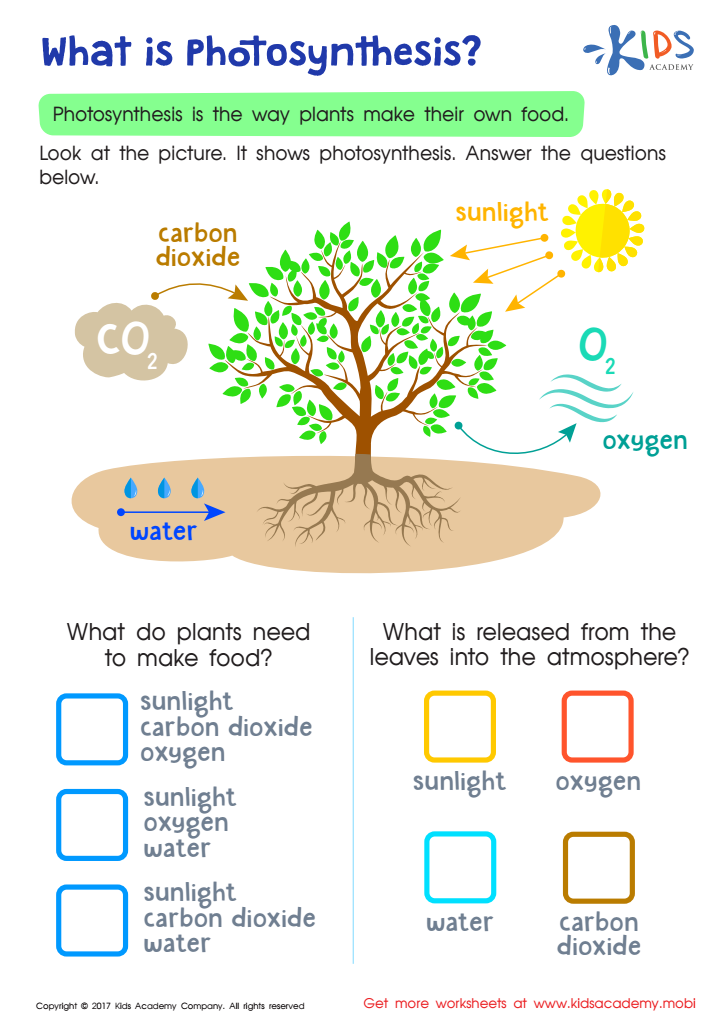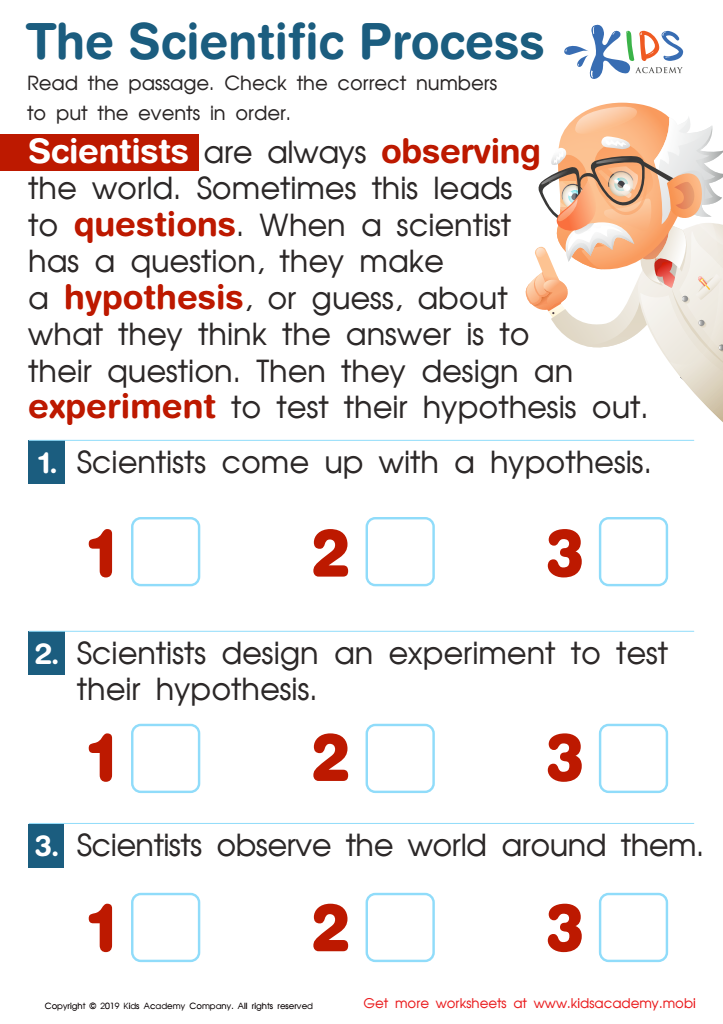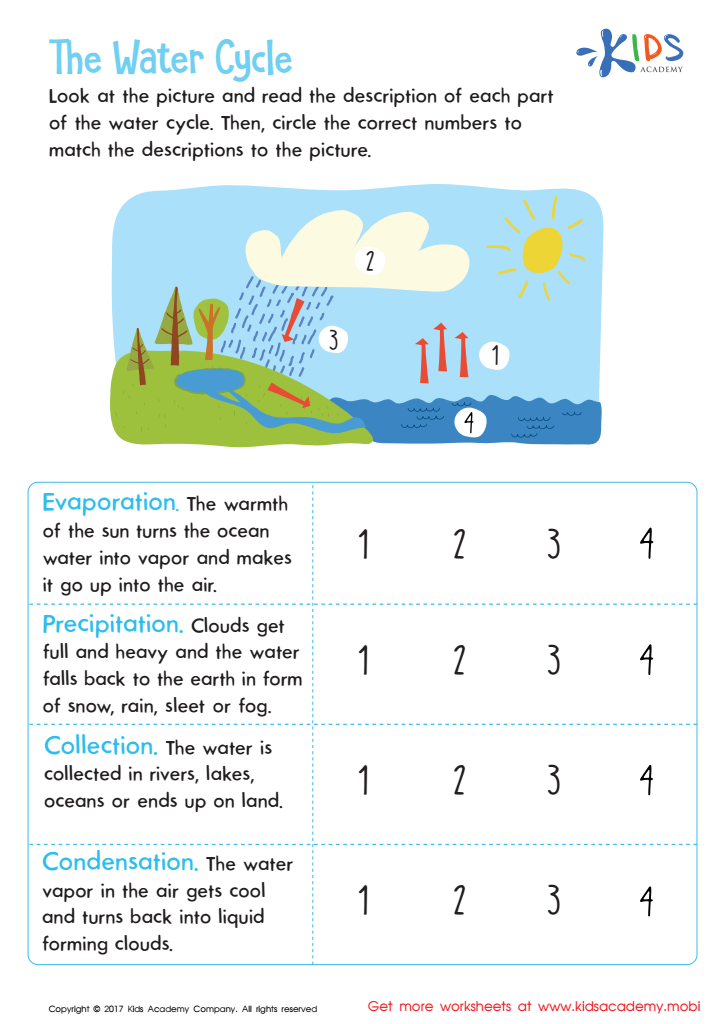Learning scientific vocabulary Worksheets for 7-Year-Olds
3 filtered results
-
From - To
Enhance your 7-year-old’s understanding of scientific vocabulary with our engaging worksheets! Designed specifically for young learners, these resources introduce key scientific terms through fun activities that spark curiosity. Each worksheet features colorful illustrations and interactive exercises that make learning enjoyable and effective. Kids will explore essential concepts related to biology, physics, earth science, and more, while developing critical thinking skills. These worksheets not only boost vocabulary but also reinforce comprehension and retention. Perfect for classroom use or at-home learning, our scientific vocabulary worksheets provide an excellent foundation for budding young scientists. Unlock the wonders of science today!


What is Photosynthesis Printable


The Scientific Process Worksheet


The Water Cycle Worksheet
Learning scientific vocabulary at the age of seven is crucial for children's overall educational development. At this stage, children are naturally curious about the world, and understanding scientific terms fosters their ability to communicate ideas and ask questions about their environment. Scientific vocabulary lays a foundation for critical thinking and problem-solving skills; it enables children to comprehend concepts and engage in discussions about health, nature, technology, and the universe.
When parents and teachers emphasize scientific vocabulary, they empower children to articulate their thoughts and construct knowledge meaningfully. This understanding enhances reading comprehension, as children encounter scientific texts and materials in school. A robust vocabulary also nourishes students' confidence, making them more willing to participate in class discussions and exploration activities.
Additionally, early exposure to scientific language helps bridge the achievement gap. By integrating vocabulary lessons into daily interactions and curriculum, parents and teachers equip children with essential skills that will benefit them in later grades and lifelong learning. Ultimately, promoting scientific vocabulary not only enriches children's intellectual growth but also ignites a passion for discovery, nourishing a strong foundation for future learning in science and beyond.

 Assign to My Students
Assign to My Students





















